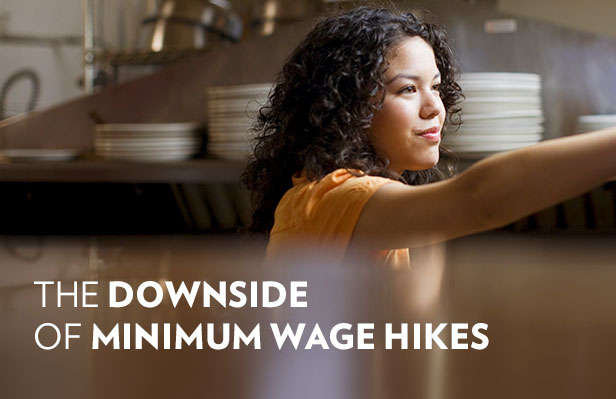Media

Growing PA’s Economy through Relief, not Mandates
Pennsylvania ranks among the worst states in terms of job growth (46th) and personal income growth (45th). Our unemployment rate remains well above the national average and our economy grew less than 2% last year.
Imposing new mandates, like Governor Wolf’s $12/hour minimum wage, will further slow the economy by hamstringing job creators.
As a former businessman, the governor surely understands that many businesses have small profit margins and that labor costs are one of the largest expenses they face. Yet his budget includes a proposal to increase the minimum wage from $7.25/hour to $12/hour – a 65% increase – with no phase-in period.
SMC Business Councils, along with 10 affiliate organizations, conducted a survey of small businesses in Western Pennsylvania to get their take on the proposal. The response was overwhelmingly negative: 85% of respondents disagreed with the proposal, while just 11% supported it.
Interestingly, 90% of the respondents already pay above the minimum wage. But they choose those wages based on market conditions and the business’ resources, not a mandate from Harrisburg.
According to the survey, an overnight hike of 65% would force firms to hire fewer unskilled workers, reduce hours, eliminate jobs, increase outsourcing/automation, and/or decrease employee benefits.
The SMC survey is just a sampling, not a scientific study. However, the Pennsylvania Independent Fiscal Office (IFO) estimated the new mandate could cost the state 54,000 jobs. Moreover, while Governor Wolf predicts a $95 million economic impact from a $12 minimum wage, the IFO says it would be closer to $40 million, most of which would take years to realize.
Rather than adding to the burdens on job creators, the state needs to reduce taxes and mandates. There are several bills in the State House that would help improve our business climate. The Taxpayer Protection Act would stop the runaway spending that necessitates more tax revenues.
House Bill 331 would encourage businesses to expand by allowing an entrepreneur to sell one asset and purchase a similar asset without a tax penalty. The federal government and every other state already allow this.
House Bill 333 would level the playing field for small businesses by allowing them to deduct up to $500,000 of a qualifying equipment purchase from state income taxes—something businesses structured as C-corporations are already able to do.
These changes will help existing businesses to prosper and make Pennsylvania more attractive to new businesses. If Governor Wolf is serious about attracting jobs, he will pursue policies that grow our economy, not government mandates.